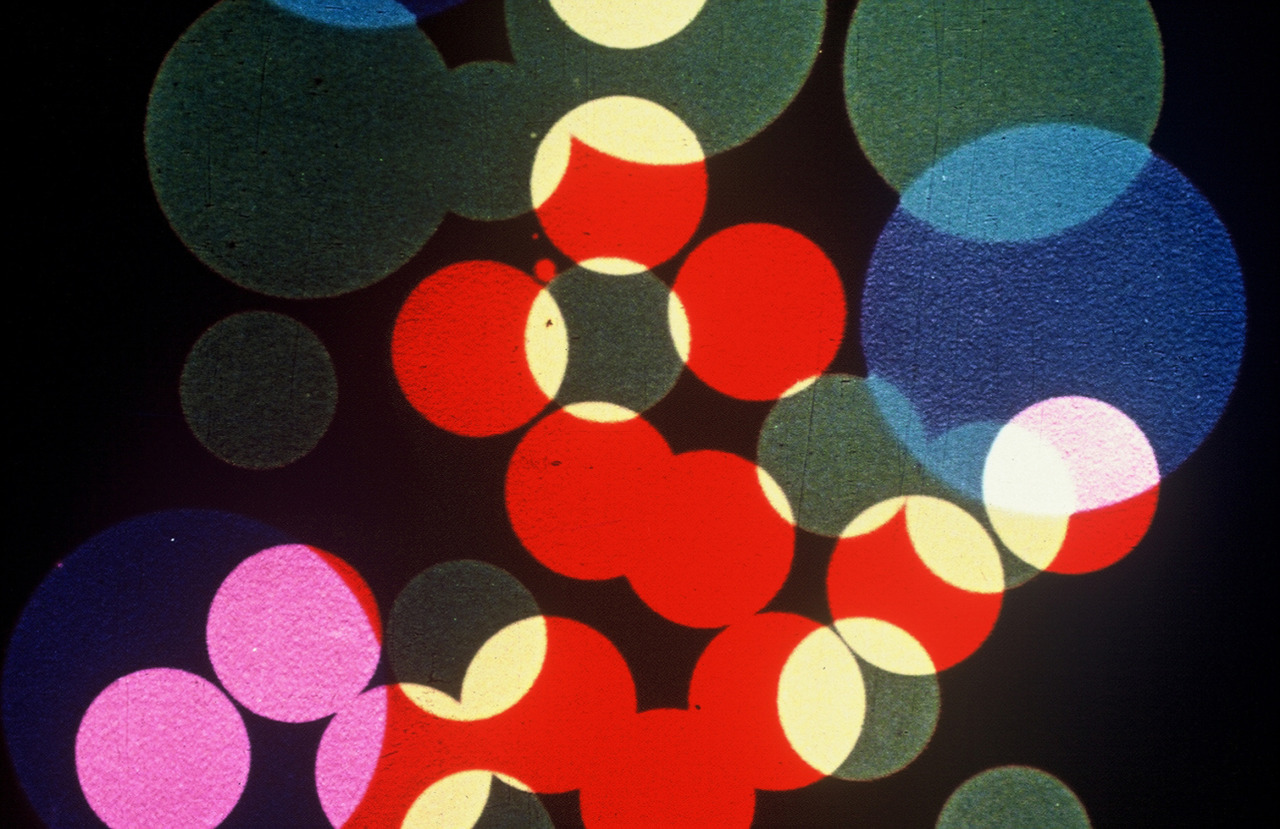
Oskar Fischinger. Kreise (Circles) 1933-34. (Courtesy Center for Visual Music.)
Many years ago as a graduate student, I spent several months thinking I might become an animator. I poured myself into my work, drawing and redrawing, honing my ability to render movement on paper, all of which culminated in my final project: an extensive series of storyboards chronicling the plight of the Brazilian rain forest.
On the day of the final review, I marched confidently into the studio, only to watch the student just before me show his own project: a laceration he’d inflicted upon his own arm, which he covered with petroleum jelly, and which he subsequently filmed as it became infected: a metaphor, he explained, for deforestation.
Animating, I learned, takes many forms.
As an artistic practice, animation is a process of aggregation: you select, you sequence, you simulate the illusion of movement. But as a life practice, to animate is to awaken. The Latin origin, animus, actually means life, and it is in this root form that the word resonates so indelibly, because that core fragment (which we can trace back to Aristotle) is, of all things, a synonym for the soul.
The wise silence, Emerson called the soul. The universal beauty.
Published the same year as his essay on self-reliance, Emerson’s essay on what he termed the oversoul can be read as a liturgical text (if you choose religion as your inflection point), as a treatise on metaphysics (if you choose philosophy as your inflection point) or, if you stop to consider the essential gestalt of studio practice, as a way to animate your work by reconnecting to your self. Emerson makes his case rather cleverly by disaggregating its component parts, examining pieces of his argument as smaller, more digestible fragments: a brilliant approach and—not for nothing—a cogent coping strategy, particularly if you're feeling overwhelmed. (For a more contemporary read, the American writer Anne Lamott has her own pitch-perfect take on this.)
We live in succession, Emerson writes, in division, in parts, in particles.
Those parts and particles are brilliantly laid bare in the work of the German avant-garde animator, Oskar Fischinger, who was propelled by many things, not least of which was his seemingly unstoppable imagination. He made meticulous studies with cut paper, invented new tools to capture single-cell exposures, and experimented as a filmmaker with wide-ranging materials including wax, charcoal, and oil paint. He scratched lines directly on glass, choreographed cigarettes like toy soldiers, and prototyped then-unimaginable feats of mechanical synchronization. An abstract artist with a highly disciplined mind, Fischinger examined every formal component, every intersectional method, and every last dazzling detail, disassembling and recombining ideas in new and unusual ways. He was fearless. He was iconoclastic. And most critically, he was—in that most Emersonian way—alert to his own independent mind, seeing with clarity because he listened to something deep, internal, and unique.
We see the world piece by piece, as the sun, the moon, the animal, the tree, Emerson wrote, but the whole, of which these are shining parts, is the soul.
Reclaiming your practice means animating those shining parts, making space for new affirmations, new awakenings, and new allegiances. It means addressing the complexity of the problem in front of you by breaking it down first, examining and isolating its multiple, sometimes messy component parts. It means paying attention to your own wise silence. Like Aristotle did. Like Emerson did. Like Fischinger did.
And like my former classmate did, the one whose infected arm I’ve never forgotten. His name, by the way, is Matthew Barney.
The Self-Reliance Project is a daily essay about what it means to be a maker during a pandemic. Sign up to get it delivered to your inbox here.
